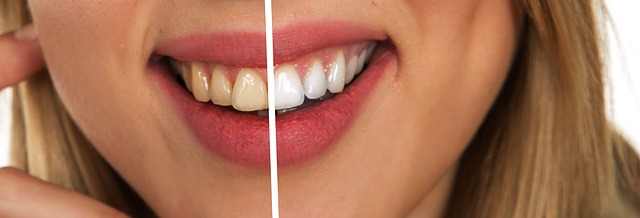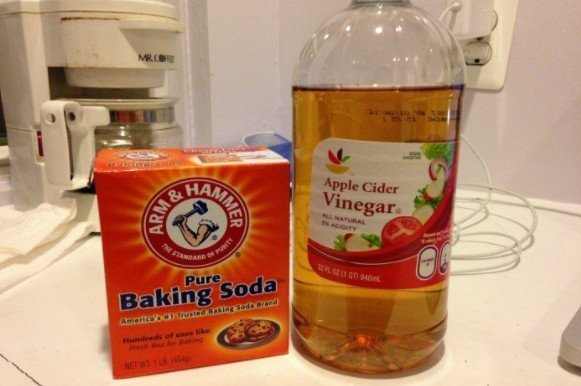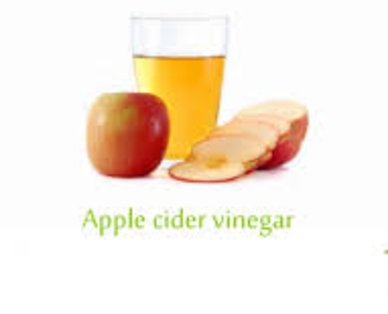A bright shiny smile can be a great boost to your self-esteem. According to WebMD, teeth whitening is ideal for people who have healthy, unrestored teeth and gums. By definition, whitening of your teeth can either be the restoration of natural tooth shade or whitening beyond natural tooth shade. This process can be expensive, but did you know you could easily and at a low cost whiten your teeth at home?
For a long time now, people have continued to use apple cider vinegar to lighten their teeth and make their smiles brighter. But can you use apple cider vinegar to whiten teeth?
Apple cider vinegar is said to be a multipurpose household product. Among the many properties of this great natural remedy is the natural whitening product.
Due to its great properties, most natural remedies enthusiasts recommend that everyone should have a bottle of raw, organic, unfiltered, and unpasteurized apple cider vinegar in the home. When in this condition, apple cider is said to be rich in pectin’s, healthy enzymes and essential mineral. These properties are what make apple cider a great natural cure to whiten teeth at home.
A common precaution before attempting to lighten your teeth is that you need to understand why your teeth are turning yellow or brown. According to Dr. Axe, teeth become discolored, turn color to either yellow or brown as a result of stains that develops on the teeth surface. The surface of the teeth is what is called the enamel. It is the hard, white surface of your teeth.
Dr. Axe continues that, while it is unrealistic to expect that your teeth will remain white and shiny at old age, many of the factors that accelerate the rate of teeth discoloration can be avoided. Some of the reasons your teeth become discolored, turns yellow, beige, or brown will include the following:
- Excessive consumption of coffee
- Smoking or chewing tobacco products
- Thinning tooth enamel common in old people
- Poor feeding culture, a common practice that would accelerate tooth discoloration is consuming a lot of processed foods
- Tooth discoloration is also common in people who suffer from dry mouth
- High intakes of fluoride
- Genetic factor where a child inherits some condition causing teeth discoloration from the parents
Does apple cider vinegar whiten teeth?
According to a survey by the American Academy of cosmetic dentistry, most people wish to have a bright white smile. Teeth whiting can be expensive and time-consuming, with unwanted risks such as tooth sensitivity if not done in the right way.
Ove time, people have continued to use inexpensive methods to try and achieve a bright white smile. Some of the commonly used ‘home remedies used nowadays include activated charcoal and apple cider vinegar. Does apple cider vinegar whiten teeth? Those who have used this remedy claim that it works great in whitening teeth and achieving a bright shiny smile.
What makes apple cider vinegar great teeth whitening remedy is the great cleansing power with very mild action. Apple cider may also help maintain the PH in the acidity range. This is what helps in achieving a brighter smile.
When used to whiten teeth, apple cider works by not only removing the yellow or brown stains on your teeth but also kill germs that might cause gum diseases and infections. Apple cider vinegar has long been used as a natural home remedy. Apart from teeth whitening, this remedy can also be used to:
- Aid digestion
- Help control blood sugar level
- Make hair dark and shinier
- Aid weight loss
- Salad dressing
What is apple cider vinegar? Apple cider vinegar is a sour liquid made during a fermentation process that converts sugar to alcohol and then alcohol to acetic acid. This solution has around 5% acidity. Apple cider comes from apples and plain water.

How to use apple cider vinegar for teeth whitening
How do can you use apple cider vinegar to whiten teeth at home? Vinegar is known to kill bacteria and also whiten dark and discolored teeth. To whiten your teeth, you can choose to only use apple cider or a mixture of apple cider with baking soda.
Step 1: using apple cider vinegar
Apple cider can be used in different ways to brighten or whiten teeth at home. The most effective ways to use apple cider is in the following forms
Dilute apple cider vinegar
With dilute apple cider, all you need to do is:
- Shake the bottle containing the apple cider
- Mix two-part water with one part ACV
- Gently mix the two then use the mixture to rinse your mouth
- After rinsing your mouth with diluted apple cider, wait for 20 minutes before cleaning your mouth with a soft bristle toothbrush.
- Do this daily for a month to minimize the risk of eroding your enamel
Braggs apple cider vinegar
Bragg apple cider is raw apple cider made from healthy, organically grown apples. It is processed and bottled. In this form, apple cider can be used to add delicious flavor to salads, vegetables, or popcorn.
When used for teeth whitening, Bragg apple cider vinegar has both internal and external health benefits. Some of the benefits include:
- Maintaining healthy skin
- Soothing and relieving sore throat
- Removing body sludge toxins
- Whitening and removing plaques on teeth
Apple cider mouthwash
Apple cider mouthwash is the other great options one can use to whiten teeth at home. ACV mouthwash can help get rid of bad breath, heal oral thrush, cure chronic gum infection, and get rid of teeth stains.
When using apple cider mouthwash, you will need to brush your teeth. This is because apple cider is the acidic and continuous use of the product could lead to erosion of the enamel or cause tooth sensitivity. To use apple cider mouthwash, you will need to:
- Dilute the apple cider in a cup by mixing two parts water with one part ACV solution
- Rinse your teeth with the mixture 20 minutes before brushing your teeth
- Use your normal oral care
- Make sure to use soft bristle toothbrush to prevent harming your gums
- Do this daily for a month
- In case of any damages, discontinue the use of the mouthwash and contact your dentist as soon as possible
Step 2: using a mixture of vinegar and baking soda
A research carried out by the journal of clinic dentistry, reviewed 5 clinic studies comparing toothpaste with and without baking soda, found that the baking soda toothpaste removed more plaques.
It is true, therefore, to say that you can safely and easily use baking soda paste to whiten your teeth at home by removing stains on your teeth.

A recent study reported in an issue of “compendium of continuing education in dentistry” showed that the use of baking soda chewing gums twice in a day for 200 minutes reduces dental stain by 30 percent compared to using chewing gums that do not contain baking soda.
How then can you use a mixture of apple cider vinegar and baking soda to whiten your teeth at home? The procedure for using this mixture is as follows:
- Mix two-part apple cider vinegar with one part baking soda
- Gently mix the two in a cup to achieve a fine paste
- For fast, effective whitening, use the paste of apple cider and baking soda together with your daily oral care
- Repeat the process twice daily for a month
When using apple cider, always shake the bottle before using it. This is because the essential compounds are present at the bottom of the bottle.
You need not forget to dilute the solution before use. Apple cider, as mentioned, is acidic. It may be harmful to your teeth enamel when used undiluted.
The final precaution to observe when using apple cider vinegar is to avoid using excess or too much of this remedy. You need to use the solution not more than once in a day. Excessive use of vinegar, whether dilute or not, may weaken your enamel, cause dark teeth or lead to tooth sensitivity.
For a whiter, shinier smile, you will need to do the following:
- Make sure you eat well. According to Peta Leigh, a teeth whitening expert, foods that are firm or crisp are known to help clean teeth as they are eaten. ACV is considered a great natural toothbrush that can be used before or after meals
- Getting a calcium boost is the other simple and natural way to achieve bright teeth. Though very fattening, cheese is known to maintain healthy white teeth. Cheese is said to speed up the neutralization of acid and the remineralization of enamel.
- To keep your teeth white, you will also need to neutralize the acid in your mouth. Peta Leigh notes that chewing gum can be very beneficial when it comes to maintaining a white smile. Chewing gum helps to clean teeth mechanically by removing debris. It also stimulates the production of saliva, thus increasing your ability to neutralize the acid and remineralize your enamel.
- For a bright white smile, smoking is a NO. Lifestyle choices can influence a naturally white smile with smoking said to be the biggest cause of teeth decay and discoloration. The nicotine and tar in tobacco products are what causes the teeth to darken and lose their natural whiteness.
Other options to whiten teeth at home
Apart from apple cider vinegar, there are other great natural home remedies that you might use to get bright white teeth at home. Some of the remedies you might try will include the following:
- Hydrogen peroxide and baking soda
- Coconut oil and peppermint
- Lemon peels
- Activated charcoal
- Brushing and flossing
Other uses of apple cider vinegar
Apart from whitening your teeth, apple cider vinegar has great properties that can be harnessed and used for different functions on the body, inside the body and other at-home functions. Some of the other functions of apple cider vinegar include the following:
- Remove dandruff and make hair shiny
- Soothe a sore throat
- Eliminate foot odor, apple cider can be used as a treatment for athlete’s foot and foot odor resistant. ACV is said to be a great antifungal remedy.
- Heal a sunburn
- Balance digestive system and aid in digestion, taking a tablespoon of organic ACV in a glass of water will help your body detoxification and elimination channels
- Clear up the skin, ACV is a great treatment for people with oily skin, acne, scars, age spots, and milia on skin.
- Wart remover
- Rodent repellent simply soak a cotton ball in undiluted vinegar to keep the rodents out
- Killing weed, all you need to do is spray undiluted apple cider. This kills the weed without adding unhealthy toxins to your lawn
Precautions and side effects
When using apple cider vinegar to whiten your teeth at home, there are some precautions and side effects you need to be aware of. Apple cider is very acidic. It is said to have a pH of around 3.075, continuous use of undiluted vinegar can damage the teeth enamel. Continuous use of apple cider will start to erode your teeth enamel.

The erosion of the enamel due to the high acidity of the apple cider makes the tooth surfaces appear darker as the shiny layer breaks down. With time and continuous use of the remedy, the protective outer enamel becomes weakened from too much acidity; this is what leads to tooth sensitivity.
To prevent the side effects of apple cider effect on your teeth, the key is to dilute the solution and use it sparingly. This means that when using apple cider to whiten your teeth at home, simply create a rinse of one part apple cider and two-part water, the gently swish around the mouth for about a minute.
Even dilute apple cider vinegar can be abrasive, therefore, after you have used the vinegar in your mouth, wait for some minutes before brushing your teeth. Applying a rough toothbrush to the enamel can be damaging, make sure to use a toothbrush with soft bristles.
Apple cider vinegar can be a great organic option to whiten your teeth. As with any product, natural or manufactured, you will need to consult a medical professional before use. In the case of apple cider vinegar, you will need to use it in moderation for greater benefit and to reduce or minimize the risk and side effects associated with the remedy.
The following are some of the side effects associated with using apple cider vinegar:
1. Damage to the enamel and gums
Continued use of apple cider vinegar, whether diluted or not, is said to cause damage to body tissue include gums and mouth inner lining. With continued use of this remedy for internal uses, it could corrode the esophagus, the stomach lining, and even the gums or the enamel.
When used externally, the direct application of apple cider vinegar can cause irritation, rashes, and a feeling of burning sensation. If you have to use this remedy, make sure to dilute it with water or blend it with baking soda before use.
2. Reduced potassium levels in the body
The high acetic acid content of apple cider vinegar is said to cause the low potassium level in the blood. This condition is known as hypokalemia. Some of the symptoms associated with this condition include:
- General body weakness
- Low blood pressure
- Nausea
- Cramps
- Paralysis
To prevent this, you need to consult your health care provider before using apple cider orally, also discontinue the use of ACV once you notice the above problems and seek immediate medical attention.
3. Gastrointestinal problems
When used internally, apple cider may also cause gastrointestinal problems. Some of the functional disorders that might result from the internal use of apple cider include constipation and irritable bowel syndrome.
Internal use of ACV could also lead to diarrhea and heartburn. This is common when the apple cider was used for detoxification. In cases of such side effects, lower the dosage, or discontinue the use of apple cider.
4. Sore throats
The other common side effect of orally using apple cider is that it may cause your throat to become sore. The acetic acid in the apple cider is what cause the throat to become irritated when the remedy is used orally.
That should tell you why it is very important to dilute the remedy before using it, either orally or on the surface of the skin.
5. Reduced blood sugar
Excessive use of apple cider is said to cause a drop in blood sugar level. The drop is caused by the anti-glycemic effect of apple cider vinegar on blood cells. In severe cases, apple cider might cause:
- Diabetic hypoglycemia
- Reduce glucose supply to the brain
- Unconsciousness or coma
References
- Tooth staining and discoloration: https://en.wikipedia.org/wiki/Tooth_whitening
- What is teeth whitening: http://www.nhs.uk/Livewell/dentalhealth/Pages/teeth-whitening.aspx
- What is used in teeth whitening: http://www.colgate.com/en/us/oc/oral-health/cosmetic-dentistry/teeth-whitening/article/tooth-whitening
- Other natural remedies to whiten teeth: https://draxe.com/6-ways-to-naturally-whiten-your-teeth/
- Other uses of apple cider vinegar: http://www.doctoroz.com/slideshow/surprising-ways-use-apple-cider-vinegar?gallery=true&page=1


